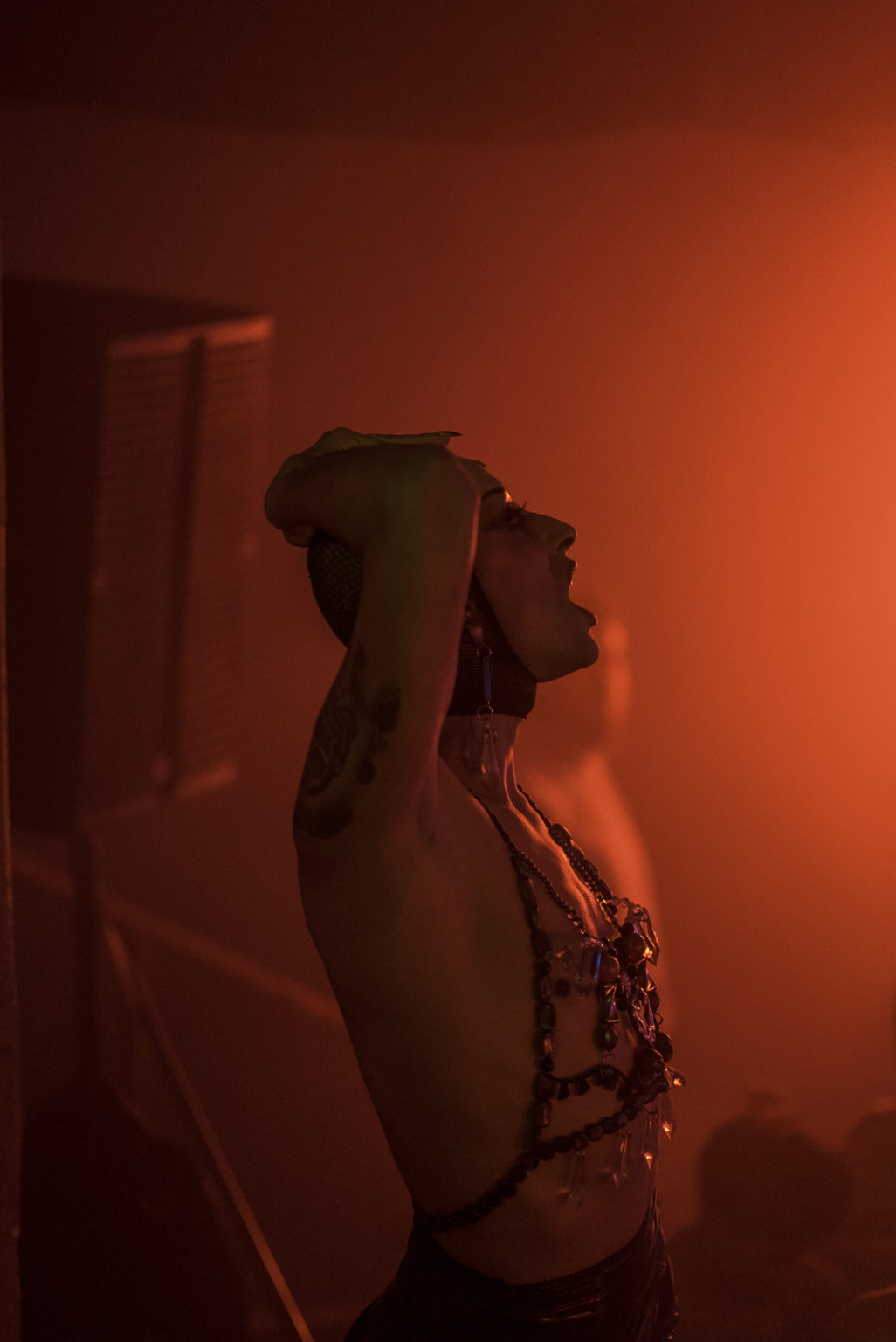THE TENDER HEART BEHIND ONE OF MEXICO CITY’S FIERCEST ELECTRONIC PARTIES.
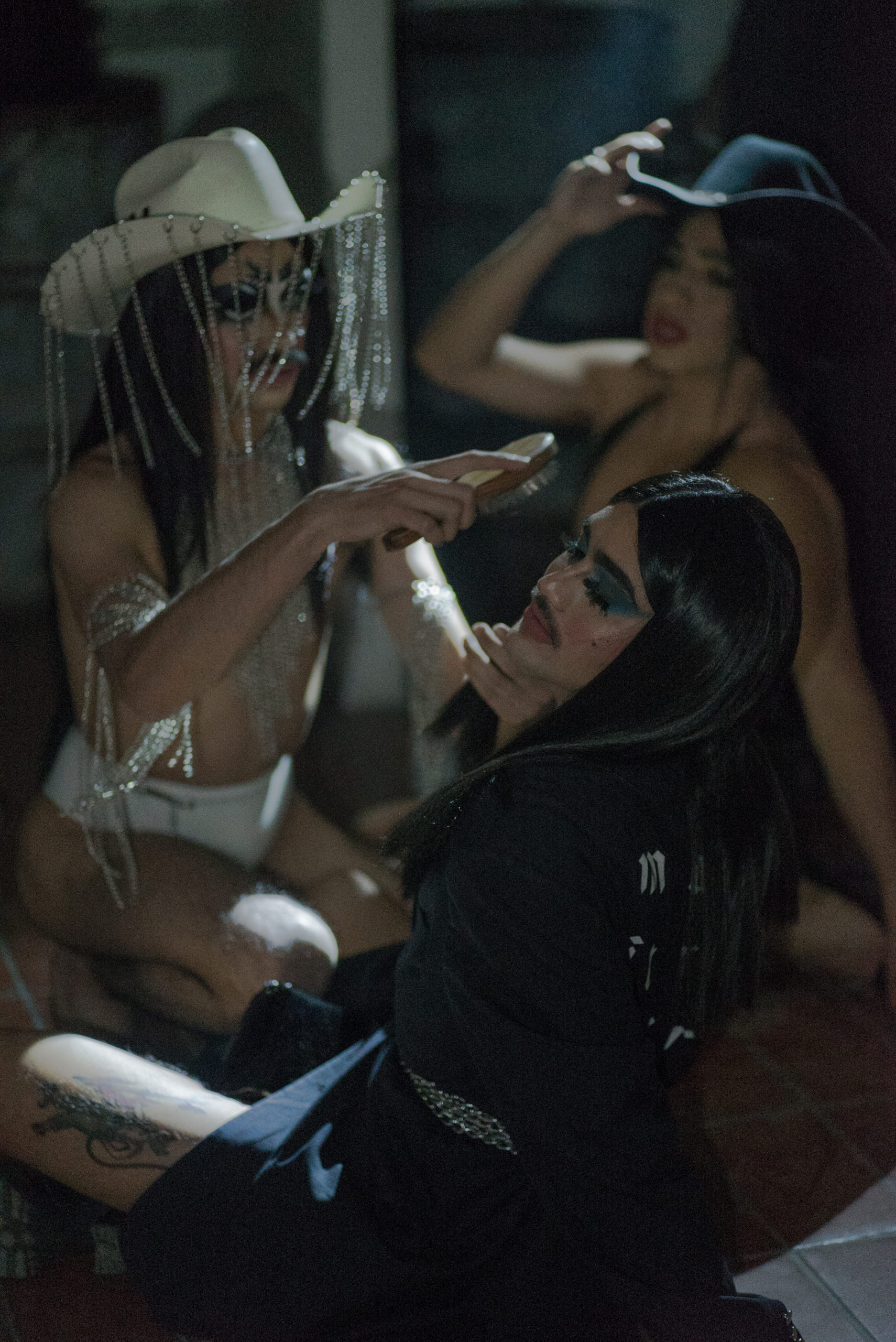
The first time I attended one of Por Detroit’s parties was at New Years. I was new to Mexico City and a complete outsider to the electronic music world. That night, two close friends told me the party’s location and I remember being a bit taken by surprise: the party would take place on the top floor of an empty building in Colonia Doctores. We arrived, climbed the stairs at 12:00 AM sharp, and celebrated until the end. To this day I still remember what I saw and felt which, in short, was nothing I had ever experienced in my entire life. The piercing techno music and the mystery of the building were completely alluring: to me, that night was the right place to be in the entire world, a symbol of youth and freedom in Mexico’s capital city.
I tried to catch every Por Detroit party since then. My student budget wouldn’t let me attend costly parties and Por Detroit had a unique dynamic that at the moment felt very empathetic. If you didn’t have enough money to pay for your entrance, a simple message explaining the situation and your full name would suffice. If I gathered enough money for the taxi I would jump in with my heart pumping with excitement, ready to create another memory of great music and interesting faces, maybe even new friends.
Eventually, I started wondering who could be the team behind this, who would these people have to be and who would they have to know in order to make nights like this happen. I found out it was Canadian born Jerren (Perfect Lovers) and Mexico City’s Arturo Mejía (Kodemul) who ran the whole thing and created Por Detroit as a space for a free expression of self. This time I got the chance to talk to Arturo, the man who I had only seen in between red smoke at 3 AM holding a camera, smiling and saying “hi” to everybody. He probably doesn’t remember, but the first time we actually talked I came up to him and thanked him for letting me in without paying. Once again I didn’t have any money, but this time it was my birthday 22.
So here is my conversation with Arturo, two years after getting to know Por Detroit for the first time and now under totally different circumstances for all the people involved.
I tried to catch every Por Detroit party since then. My student budget wouldn’t let me attend costly parties and Por Detroit had a unique dynamic that at the moment felt very empathetic. If you didn’t have enough money to pay for your entrance, a simple message explaining the situation and your full name would suffice. If I gathered enough money for the taxi I would jump in with my heart pumping with excitement, ready to create another memory of great music and interesting faces, maybe even new friends.
Eventually, I started wondering who could be the team behind this, who would these people have to be and who would they have to know in order to make nights like this happen. I found out it was Canadian born Jerren (Perfect Lovers) and Mexico City’s Arturo Mejía (Kodemul) who ran the whole thing and created Por Detroit as a space for a free expression of self. This time I got the chance to talk to Arturo, the man who I had only seen in between red smoke at 3 AM holding a camera, smiling and saying “hi” to everybody. He probably doesn’t remember, but the first time we actually talked I came up to him and thanked him for letting me in without paying. Once again I didn’t have any money, but this time it was my birthday 22.
So here is my conversation with Arturo, two years after getting to know Por Detroit for the first time and now under totally different circumstances for all the people involved.
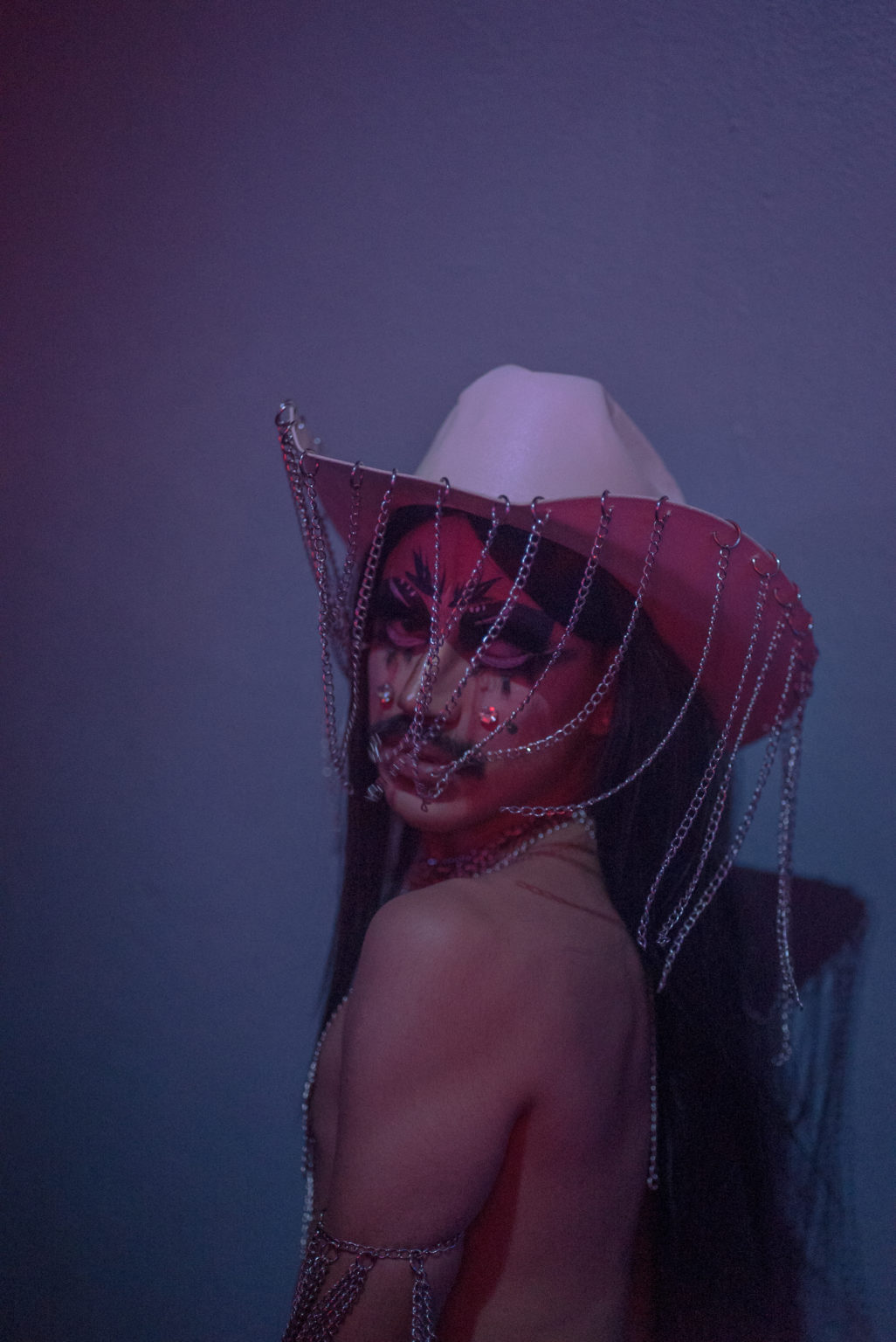
R: I wasn’t so sure that you were from Mexico City.
A: Yes, I was born in the north of Mexico City, near Tlalnepantla.
R: Alright then, I would like to go way, way back and ask something about your childhood. Do you remember yourself as a child? Something about your personality, your interests?
A: I remember that as a child I had a camera. It was the first toy that allowed me to experiment in other ways. Photography has always been present in my life, even though there was no one in my life that was a professional photographer. Photography is always present at parties and my parents and family in general have always been party lovers. It was very common to have these pocket cameras, so this was my first approach.
R: At what age did you start to create an identity directed towards the person you are today? Was there a moment that defined you?
A: I started out very late and that’s something I have very present. I’m from a popular neighborhood so the dynamic of being the fag from the block does have its consequences and I kind of suffered from that. I was bullied in school and outside of home for being effeminate and one of the smallest of the group. They saw that I was small and they thought they could be violent with me. To be the way I am today did cost some work because I grew up with the idea of what a “man” had to be. I tried to be less effeminate and I wouldn’t allow myself to grow as I truly would have wanted to. The context that surrounds us is what allows us to develop into who we are, and I stumbled upon that until I met people with the same ideas. Reading also helps you a lot. It helps you know what’s your context, what’s happening around you and how you want to be represented.
R: Did you have a moment in your life in which you tried to deny who you are in order to live, let’s say, a more “normal” life?
A: No, more than anything I avoided certain things. For example, I wouldn’t tell my circle of friends that I liked one of my best friends. Back then it was socially wrong. Having that burden upon you is very hard, especially if you’re someone that doesn’t have a supportive family.
R: And you? Who had your back when you were growing up?
A: My family, my first core. My sisters and my parents.
R: Can you tell me a bit more about what you learned about the concept of masculinity and how you started to perceive it differently?
A: What I saw all around me was literally all that being a macho stands for, but little by little you start to see other things, information is there but sometimes it’s not so easy to access. Social media has helped a lot in this aspect, you can connect to people with the same ideals. We come from a culture that is not familiar with these new terms and ideologies, let alone the feelings of the LGBT+ community.
R: And before meeting this group of people that are now your support, was there a moment in which you felt alone?
A: Not really, I feel like all of us connect for a reason. Also, I believe that the vibe you put out is what you’ll get in return. Just an example, if you’re cool with people you can be sure that your attitude will have its fruits.
R: Would you then say that Por Detroit was born of the same feeling?
A: Yes, we want to give people a space in which they can do something related to partying. They don’t have to be a super known personality in order to do something. If we like what they do it doesn’t matter if they’re learning, we believe that giving an opportunity is much cooler. And we noticed that the diversity scene in Mexico City had many things that could improve. We still acknowledge that zona rosa is a very important part of the scene even though we’re doing completely different things, but at the same time there are spaces that can’t have the things that happen at Por Detroit.
A: Yes, I was born in the north of Mexico City, near Tlalnepantla.
R: Alright then, I would like to go way, way back and ask something about your childhood. Do you remember yourself as a child? Something about your personality, your interests?
A: I remember that as a child I had a camera. It was the first toy that allowed me to experiment in other ways. Photography has always been present in my life, even though there was no one in my life that was a professional photographer. Photography is always present at parties and my parents and family in general have always been party lovers. It was very common to have these pocket cameras, so this was my first approach.
R: At what age did you start to create an identity directed towards the person you are today? Was there a moment that defined you?
A: I started out very late and that’s something I have very present. I’m from a popular neighborhood so the dynamic of being the fag from the block does have its consequences and I kind of suffered from that. I was bullied in school and outside of home for being effeminate and one of the smallest of the group. They saw that I was small and they thought they could be violent with me. To be the way I am today did cost some work because I grew up with the idea of what a “man” had to be. I tried to be less effeminate and I wouldn’t allow myself to grow as I truly would have wanted to. The context that surrounds us is what allows us to develop into who we are, and I stumbled upon that until I met people with the same ideas. Reading also helps you a lot. It helps you know what’s your context, what’s happening around you and how you want to be represented.
R: Did you have a moment in your life in which you tried to deny who you are in order to live, let’s say, a more “normal” life?
A: No, more than anything I avoided certain things. For example, I wouldn’t tell my circle of friends that I liked one of my best friends. Back then it was socially wrong. Having that burden upon you is very hard, especially if you’re someone that doesn’t have a supportive family.
R: And you? Who had your back when you were growing up?
A: My family, my first core. My sisters and my parents.
R: Can you tell me a bit more about what you learned about the concept of masculinity and how you started to perceive it differently?
A: What I saw all around me was literally all that being a macho stands for, but little by little you start to see other things, information is there but sometimes it’s not so easy to access. Social media has helped a lot in this aspect, you can connect to people with the same ideals. We come from a culture that is not familiar with these new terms and ideologies, let alone the feelings of the LGBT+ community.
R: And before meeting this group of people that are now your support, was there a moment in which you felt alone?
A: Not really, I feel like all of us connect for a reason. Also, I believe that the vibe you put out is what you’ll get in return. Just an example, if you’re cool with people you can be sure that your attitude will have its fruits.
R: Would you then say that Por Detroit was born of the same feeling?
A: Yes, we want to give people a space in which they can do something related to partying. They don’t have to be a super known personality in order to do something. If we like what they do it doesn’t matter if they’re learning, we believe that giving an opportunity is much cooler. And we noticed that the diversity scene in Mexico City had many things that could improve. We still acknowledge that zona rosa is a very important part of the scene even though we’re doing completely different things, but at the same time there are spaces that can’t have the things that happen at Por Detroit.
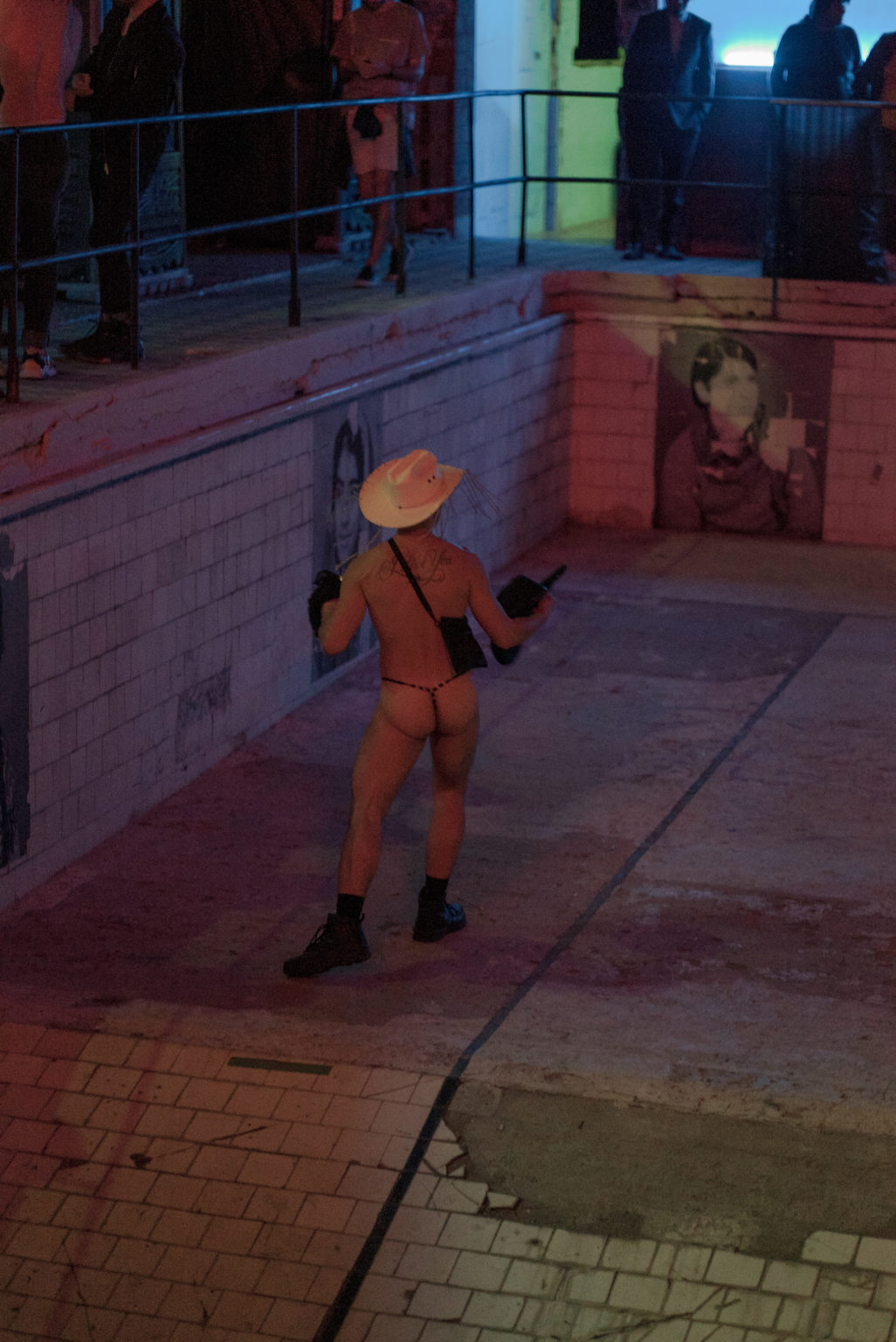
R: Can you tell me more?
A: Yeah, well, the parties I’m talking about were focused on a very specific group and we realized that a lot of people were missing out because they didn’t belong to that socioeconomic part of society. Musically these parties could be really good but a lot of people wouldn’t have the money to pay for an expensive entrance or drink. Not everyone has the possibility to go out. And we believe in the power of going out: from destressing and having a good time meeting people and networking.
R: And in personal terms, how do you think the parties that you do enrich people? Do you think Por Detroit offers a space to develop a search for identity?
A: Yes, totally. Those are the necessities that create the identity of the party. Our greatest aim is that in every edition people learn something. It all comes to that, we listened to trans people’s comments that they wanted to go into a specific bathroom. And we realized that something apparently so small held great importance. We want to be in constant communication all the time with the community and let each group know that they can express their necessities. We are against spaces that facilitate things for some but not for all. Also, we want to lead people into understanding other contexts, so in the future, they’re familiar with these people, spaces, and ideologies. I want people to come out of the party questioning themselves, even us who are part of the acronym and sometimes don’t even have the best ideas. We can always learn more.
A: Yeah, well, the parties I’m talking about were focused on a very specific group and we realized that a lot of people were missing out because they didn’t belong to that socioeconomic part of society. Musically these parties could be really good but a lot of people wouldn’t have the money to pay for an expensive entrance or drink. Not everyone has the possibility to go out. And we believe in the power of going out: from destressing and having a good time meeting people and networking.
R: And in personal terms, how do you think the parties that you do enrich people? Do you think Por Detroit offers a space to develop a search for identity?
A: Yes, totally. Those are the necessities that create the identity of the party. Our greatest aim is that in every edition people learn something. It all comes to that, we listened to trans people’s comments that they wanted to go into a specific bathroom. And we realized that something apparently so small held great importance. We want to be in constant communication all the time with the community and let each group know that they can express their necessities. We are against spaces that facilitate things for some but not for all. Also, we want to lead people into understanding other contexts, so in the future, they’re familiar with these people, spaces, and ideologies. I want people to come out of the party questioning themselves, even us who are part of the acronym and sometimes don’t even have the best ideas. We can always learn more.
“To be the way I am today did cost some work because I grew up with the idea of what a “man” had to be. I tried to be less effeminate and I wouldn’t allow myself to grow as I truly would have wanted to.” – Arturo Majía
R: I can imagine that even you have learned a lot.
A: Yes, because as I say these are not things you learn when you grow up. You come from another context and priorities are different. To understand something so simple as the bathroom thing can change everything.
R: Yeah, and that’s why it’s important that we question ourselves when we leave the party.
A: Of course, and I go back to the bathroom example. I think about the person that denied these people entry and I think that even the debate itself is something valuable. It’s a first encounter with another context. It’s very hard to go out of oneself and our ideologies, but this way at least we can see that other realities do exist.
R: In that sense, your work implies certain responsibilities. You have to be attentive to people’s needs at parties. Have you ever had to deal with uncomfortable situations?
A: I’ve been lucky, people already have an idea of how our parties go. What’s been hard is finding staff supports us because they’re used to other parties’ dynamics.
R: Sounds like a challenge indeed. I also wanted to ask you, how has your relationship with the city changed since you started working as a promoter?
A: It’s very interesting to explore the places in which you create the rules. But Jerren is the one that does the networking with the locations.
R: Hey, I don’t know who came up with this idea, but I really like that at the end of every virtual invitation you guys mention that if you don’t have enough money it’s enough to send a message and you can come in.
A: That’s cool because that’s precisely Por Detroit’s mission: to make this an affordable, safe space for anyone.
R: I’ve also seen that you’ve had parties at other countries. How is the crowd different?
A: In Los Angeles people dance a lot, they’re very free. Here too but there’s still some kind of shyness at the dancefloor. In other places they arrive and the first thing they do is dance.
R: And is there a party in Mexico City that you like?
A: I like to go out a lot so I also learn from the city’s parties. I like EXT, Pervert… I’m always looking out to see what is going on. And I always have my eyes open to things I don’t like, that way I can make sure they don’t happen at Por Detroit.
R: And what do people tell you about Por Detroit? What is the thing they like the most?
A: The music and locations. Oh! And installations.
A: Yes, because as I say these are not things you learn when you grow up. You come from another context and priorities are different. To understand something so simple as the bathroom thing can change everything.
R: Yeah, and that’s why it’s important that we question ourselves when we leave the party.
A: Of course, and I go back to the bathroom example. I think about the person that denied these people entry and I think that even the debate itself is something valuable. It’s a first encounter with another context. It’s very hard to go out of oneself and our ideologies, but this way at least we can see that other realities do exist.
R: In that sense, your work implies certain responsibilities. You have to be attentive to people’s needs at parties. Have you ever had to deal with uncomfortable situations?
A: I’ve been lucky, people already have an idea of how our parties go. What’s been hard is finding staff supports us because they’re used to other parties’ dynamics.
R: Sounds like a challenge indeed. I also wanted to ask you, how has your relationship with the city changed since you started working as a promoter?
A: It’s very interesting to explore the places in which you create the rules. But Jerren is the one that does the networking with the locations.
R: Hey, I don’t know who came up with this idea, but I really like that at the end of every virtual invitation you guys mention that if you don’t have enough money it’s enough to send a message and you can come in.
A: That’s cool because that’s precisely Por Detroit’s mission: to make this an affordable, safe space for anyone.
R: I’ve also seen that you’ve had parties at other countries. How is the crowd different?
A: In Los Angeles people dance a lot, they’re very free. Here too but there’s still some kind of shyness at the dancefloor. In other places they arrive and the first thing they do is dance.
R: And is there a party in Mexico City that you like?
A: I like to go out a lot so I also learn from the city’s parties. I like EXT, Pervert… I’m always looking out to see what is going on. And I always have my eyes open to things I don’t like, that way I can make sure they don’t happen at Por Detroit.
R: And what do people tell you about Por Detroit? What is the thing they like the most?
A: The music and locations. Oh! And installations.
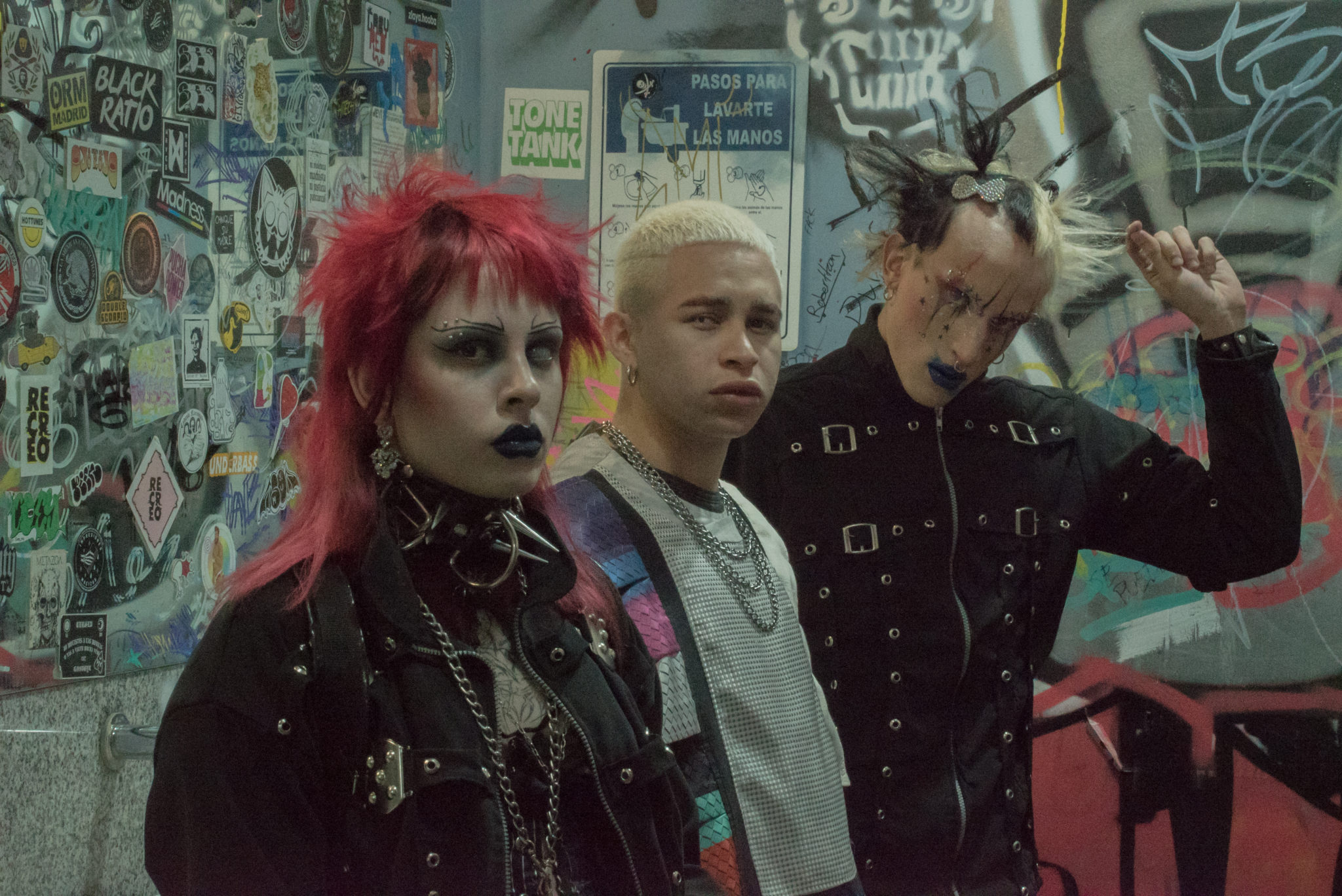
R: I also like that a lot. It’s very entertaining to have some kind of visual stimuli. I would like to ask you… After all this time, how have you grown as a person?
A: Well, now I can see how this kind of project that we do needs to have support from other people. Competition doesn’t exist, let’s not be apathetic. We can be a stronger community if everyone lends a hand in some way, from helping each other with contacts to collaborations. That’s how we can truly support each other, by making sure everyone has a space we make the scene richer. During COVID I realized that a lot of people have the spirit for collaboration and that’s amazing because it’s incredibly hard to do something by yourself in a city that’s this big.
R: As a last question I would like to go back to something we talked about in the beginning. I’m sure that there are some people out there looking for their identity and community, any word of advice?
A: That information is your best ally in order to know where you’re standing and what is the thing you want to do and take part in. It’s more of a day-to-day thing. Everything counts, from reflecting upon small things up to making a party, in my case. It’s also important to always take into account that not all of us have the same opportunities. We have to try to be empathetic towards others and their situations and try to contextualize and rethink ourselves. That’s truly empowering, since not only you help yourself but you help others as well.
A: Well, now I can see how this kind of project that we do needs to have support from other people. Competition doesn’t exist, let’s not be apathetic. We can be a stronger community if everyone lends a hand in some way, from helping each other with contacts to collaborations. That’s how we can truly support each other, by making sure everyone has a space we make the scene richer. During COVID I realized that a lot of people have the spirit for collaboration and that’s amazing because it’s incredibly hard to do something by yourself in a city that’s this big.
R: As a last question I would like to go back to something we talked about in the beginning. I’m sure that there are some people out there looking for their identity and community, any word of advice?
A: That information is your best ally in order to know where you’re standing and what is the thing you want to do and take part in. It’s more of a day-to-day thing. Everything counts, from reflecting upon small things up to making a party, in my case. It’s also important to always take into account that not all of us have the same opportunities. We have to try to be empathetic towards others and their situations and try to contextualize and rethink ourselves. That’s truly empowering, since not only you help yourself but you help others as well.
